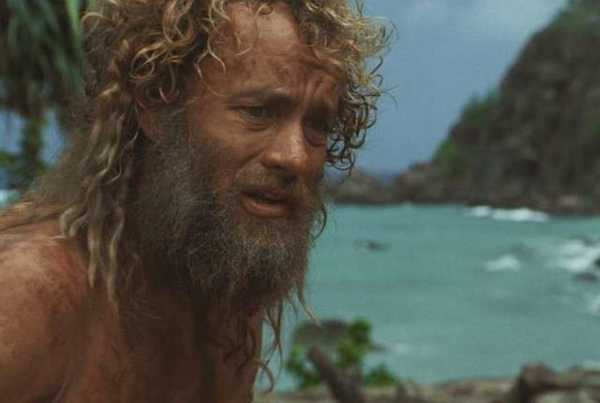This article contains spoilers
It's a story that seems way too familiar for most people: a person becomes addicted to drugs and/or alcohol, they try to get help and support, and then they sober up followed by a relapse. The result usually goes one of three ways, consisting of the cycle becoming never-ending, the worst case scenario or actually becoming sober.
We hear about these stories and their outcomes, whether it be from first-hand experience, news stories or gossip from friends; and if you're like me (and be honest with me here), you tend to just think of how sad and unfortunate it is and just move on to a different topic afterward. It wasn't until now how much I've realized how serious this issue really is.
I've been meaning to watch "Beautiful Boy" ever since I found out that Steve Carell and Timothée Chalamet were starring in a movie together as a father-and-son duo. Chalamet's performance in "Call Me By Your Name"- as well as his good looks, might I add- had sold me completely on him as a professional actor that I try to go see him in anything he's in now. Carell has proven he's a talent in many genres over the years, so I wanted to see where he was going in this particular film. (And also, who doesn't love Steve Carell?) Learning the fact that Amy Ryan was going to play the mother in the film (a.k.a Holly Flax from "The Office" who winds up becoming Steve Carell's character's wife in the same show) became the icing on the cake to go watch this as well.
From the ads and trailers I've seen previously, I knew this story revolved around a young man with a bad addiction problem and how his father is set to do anything to try and help him. I also was aware of the fact that it was based on a true story but didn't know the outcome of it. This made for an excellent experience watching the movie, but I didn't really know how it would affect me.
Not knowing what the ending will be of a film makes any movie-going experience thrilling, but the amount of anxiousness I had throughout watching this was astonishing. Nic Sheff (played by Chalamet) is a crystal meth addict that becomes addicted to other hardcore drugs, alcohol and cigarettes while he's only just graduated high school and is seen being away from home days on end in the beginning of the film. His father, David (played by Carell), soon discovers what is really happening and puts him in a rehab center for treatments. To say the least, this is not the only solution for Nic's addiction.
What makes the movie so interesting is the relationship between Nic and his father. David got custody of Nic at a young age when he divorced his mom, and flashback scenes depict an honest and really loving relationship. You even soon learn that one memory where a five-year-old Nic doesn't want to leave him to visit his mother establishes their little saying to each other whenever they hug (and it honestly made me want to cry): "Everything. Everything." It literally depicts how a father's love outweighs everything else that exists in the world.
This rings true years later when David is willing to take every measure necessary in order to help his son reach recovery. He is seen calling numerous rehab facilities to figure out which is the best one, talking to doctors about the psychological aspects of abusing drugs and even buys meth himself so he could experience first-hand what his son is addicted to. It is extremely evident that he wants to do everything in his power to get his son back, but it eventually reaches a point where he feels hopeless because the drugs have that strong a hold on his son.
Nic is seen running away from home numerous times as well as relapsing after his stint in rehab, which results in him going back to his mother's home in Los Angeles to start fresh. After he's fourteen months clean in L.A. and you really start to believe he's done for good, he panics and drives back to San Francisco to get high again. He comes across his ex-girlfriend who is also revealed to be an addict and they both get high together. One night she O.D.s and Nic literally brings her back to life with CPR, ultimately driving him to the brink of sanity. He begs his dad one last time for money to "start fresh," but when he refuses to give it to him in fear of contributing to his addiction, it drives Nic to O.D. himself. The last scene describe how it's "a miracle" that Nic lived after the amount of drugs that were actually in his system, and he is soon seen sobbing into his father's arms in the yard of the hospital.
Today, Nic Sheff has been sober for eight years and has written two memoirs about his struggle with addiction all while maintaining a great relationship with his father (who has also written books about his own experience with his son's struggles as well). The fact that this movie depicted a real-life story of addiction so honestly, and is one with a happy ending, opened my eyes to way more than just the powerful hold drugs and alcohol can really have on an individual.
While great things such as the #MeToo movement and immigration policy are at the forefront of media and political conversation right now, the ones revolving around addiction and mental health seem to be disregarded in comparison. Nobody talks enough about how big of an issue this is in our country today and that the government doesn't financially support treatments or research enough at all. We see celebrities, people on the news and even people we know get sick or even die because of issues related to substance abuse or alcoholism too often, so why aren't more people focusing on it?
"Beautiful Boy" has really shown me how addiction issues not only affect the person who ingests the substances but also the people around them who are trying to still support and love them unconditionally. Without films like this, or activists who are willing to share their honest successful stories like Nic, so many people (including myself) wouldn't feel the need to know more about this epidemic and try to bring it to the center of discussion moving forward.
What I'd really like to note is that not all addict stories end successfully, although we would all hope, or think, they normally would. This issue truly is one of the hardest to face in life, but how many more stories and movies would it have to take to make people start talking?



















